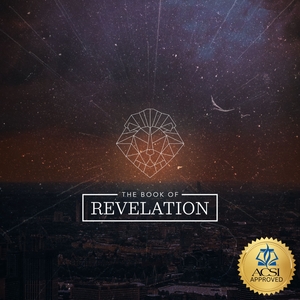What is the biblical difference between vision and prophecy?
A vision is a supernatural revelation of God given to a person in the form of a dream or trance-like state usually for the purpose of revealing the glory of God or the meaning of past or future events. Example of visions in the Bible include Abraham’s vision in Genesis 15, the dreams of Nebuchadnezzar and Daniel in Daniel 2 & 7, the visions of Isaiah in Isaiah 6, and the visions of Ezekiel throughout his book.
On the other hand, prophecy is any supernatural revelation of God regardless of form. We could say all visions are prophecy, but not all prophecy comes in the form of visions. In fact, most prophets do not receive visions. Instead, most prophets report receiving “a word from the Lord.” Consider these examples:
1Sam. 15:10 Then the word of the Lord came to Samuel, saying,
1Sam. 15:11 “I regret that I have made Saul king, for he has turned back from following Me and has not carried out My commands.” And Samuel was distressed and cried out to the Lord all night.
1Kings 6:11 Now the word of the Lord came to Solomon saying,
1Kings 6:12 “Concerning this house which you are building, if you will walk in My statutes and execute My ordinances and keep all My commandments by walking in them, then I will carry out My word with you which I spoke to David your father.
1Kings 13:9 “For so it was commanded me by the word of the Lord, saying, ‘You shall eat no bread, nor drink water, nor return by the way which you came.’”
1Kings 21:17 Then the word of the Lord came to Elijah the Tishbite, saying,
1Kings 21:18 “Arise, go down to meet Ahab king of Israel, who is in Samaria; behold, he is in the vineyard of Naboth where he has gone down to take possession of it.
1Chr. 22:7 David said to Solomon, “My son, I had intended to build a house to the name of the Lord my God.
1Chr. 22:8 “But the word of the Lord came to me, saying, ‘You have shed much blood and have waged great wars; you shall not build a house to My name because you have shed so much blood on the earth before Me.
In all these examples, a prophet expresses the will of God based on having received a “word from the Lord.” We do not know how they prophet received this word, but in the absence of any explanation, we assume it was through ordinary means and not by way of a vision. Other times a prophet will state he received the word of the Lord by way of a vision specifically:
Ezek. 1:2 (On the fifth of the month in the fifth year of King Jehoiachin’s exile,
Ezek. 1:3 the word of the Lord came expressly to Ezekiel the priest, son of Buzi, in the land of the Chaldeans by the river Chebar; and there the hand of the Lord came upon him.)
Ezek. 1:4 As I looked, behold, a storm wind was coming from the north, a great cloud with fire flashing forth continually and a bright light around it, and in its midst something like glowing metal in the midst of the fire.
Ezekiel received most (some say all) his prophecies as visions, which makes Ezekiel unique among the major OT prophets.
Scripture quotations taken from the (NASB®) New American Standard Bible®, Copyright © 1995, 2020 by The Lockman Foundation. Used by permission. All rights reserved. www.lockman.org








